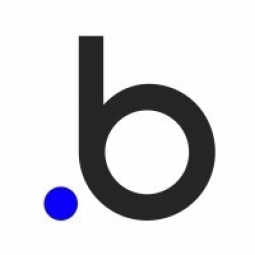Download PDF
Transforming E-Sports Management with IoT: The Award Pool Case Study
Technology Category
- Analytics & Modeling - Machine Learning
- Platform as a Service (PaaS) - Application Development Platforms
Applicable Industries
- Cement
- Equipment & Machinery
Use Cases
- Building Automation & Control
- Inventory Management
Services
- Cloud Planning, Design & Implementation Services
- System Integration
The Challenge
Award Pool, an automated e-sports tournament and management tool, was faced with the challenge of bridging the gap between existing online tools and the e-sports industry professional's needs. The co-founders, Reuven Cohen and Alex Falconer, aimed to create a complete management system that could cater to leagues, teams, tournament organizers, and players. The system needed to be multifaceted, allowing users to participate in a tournament, set up a league, manage player profiles, recruits, player payments, and even legally binding player contracts. Additionally, the system had to handle tournament management, including the creation of brackets, prize payments, and integrated video broadcasting tools. The challenge was further compounded by the need to integrate various APIs and cloud platforms, and the requirement for a Javascript centric platform due to the use of custom code in NodeJS.
About The Customer
Award Pool is an automated end-to-end e-sports competition and management platform. It is designed for leagues, teams, tournament organizers, and players, providing all the necessary tools to manage an e-sports organization successfully. The platform is versatile, allowing users to participate in a tournament, set up a league, manage player profiles, recruits, player payments, and even legally binding player contracts. Users can also manage their tournaments, including the creation of brackets, prize payments, and integrated video broadcasting tools. The platform is also capable of predicting the likely winner of a tournament or the statistical advantage of drafting player A vs. player B, providing users with a competitive advantage.
The Solution
The solution was found in Bubble, a leader in the no-code movement. Bubble's powerful point-and-click web editor and cloud hosting platform allowed Award Pool to build a fully customizable web application. Bubble's fast and efficient integration of backend workflows brought the vision for Award Pool to life. The platform was able to integrate many different APIs and cloud platforms, accelerating the time to market. Bubble's handling of recurring events and backend workflows enabled rapid integration of internal and external data, providing users with a competitive advantage. For instance, the system could predict the likely winner of a tournament or the statistical advantage of drafting player A vs. player B. Bubble's UI, API Integration, and data layers acted as a kind of middleware, eliminating the complexities of building these components from scratch and allowing the team to focus on integrating and building the components that provide industry differentiation.
Operational Impact
Quantitative Benefit
Related Case Studies.

Case Study
Smart Water Filtration Systems
Before working with Ayla Networks, Ozner was already using cloud connectivity to identify and solve water-filtration system malfunctions as well as to monitor filter cartridges for replacements.But, in June 2015, Ozner executives talked with Ayla about how the company might further improve its water systems with IoT technology. They liked what they heard from Ayla, but the executives needed to be sure that Ayla’s Agile IoT Platform provided the security and reliability Ozner required.

Case Study
IoT enabled Fleet Management with MindSphere
In view of growing competition, Gämmerler had a strong need to remain competitive via process optimization, reliability and gentle handling of printed products, even at highest press speeds. In addition, a digitalization initiative also included developing a key differentiation via data-driven services offers.

Case Study
Predictive Maintenance for Industrial Chillers
For global leaders in the industrial chiller manufacturing, reliability of the entire production process is of the utmost importance. Chillers are refrigeration systems that produce ice water to provide cooling for a process or industrial application. One of those leaders sought a way to respond to asset performance issues, even before they occur. The intelligence to guarantee maximum reliability of cooling devices is embedded (pre-alarming). A pre-alarming phase means that the cooling device still works, but symptoms may appear, telling manufacturers that a failure is likely to occur in the near future. Chillers who are not internet connected at that moment, provide little insight in this pre-alarming phase.

Case Study
Premium Appliance Producer Innovates with Internet of Everything
Sub-Zero faced the largest product launch in the company’s history:It wanted to launch 60 new products as scheduled while simultaneously opening a new “greenfield” production facility, yet still adhering to stringent quality requirements and manage issues from new supply-chain partners. A the same time, it wanted to increase staff productivity time and collaboration while reducing travel and costs.

Case Study
System 800xA at Indian Cement Plants
Chettinad Cement recognized that further efficiencies could be achieved in its cement manufacturing process. It looked to investing in comprehensive operational and control technologies to manage and derive productivity and energy efficiency gains from the assets on Line 2, their second plant in India.

Case Study
Integration of PLC with IoT for Bosch Rexroth
The application arises from the need to monitor and anticipate the problems of one or more machines managed by a PLC. These problems, often resulting from the accumulation over time of small discrepancies, require, when they occur, ex post technical operations maintenance.





